MOSUL, Iraq - Noncommissioned officers have served steadfastly as the backbone of the United States Army throughout its 235-year history. Now U.S. Soldiers in United States Division-North are passing on the importance of the NCO's role to their Iraqi counterparts by emphasizing professionalism and leadership. Soldiers from Company C, 2nd Battalion, 159th Aviation Regiment, Task Force Gunslinger, partnered with the 3rd Iraqi Federal Police Division and 3rd FP Transition Team in Mosul, Iraq, April 10. The goal was to assist the IFPs in understanding NCO responsibilities, to demonstrate the basic capabilities of the AH-64D Apache attack helicopter, and to provide recommended management skills to maximize their resources in Mosul. "The purpose of the training was interaction with the Iraqis to let them know what we do as noncommissioned officers and what kind of maintenance we perform," said Sgt. 1st Class Christopher Solis, platoon sergeant, C Co., 2/159th Avn. Regt., TF Gunslinger. "[And how we conduct] maintenance management - the technical aspect of it. We familiarized them with the [AH-64D Apache attack helicopter] and basically answered any questions they may have had about the aircraft." Solis, and other senior leaders within the TF Gunslinger maintenance team, explained the concept of the attack battalion's "launch-recover-launch" mission. This strategy effectively maximizes the availability of the AH-64Ds, which means more aerial coverage for U.S. Soldiers and their Iraqi counterparts in the Iraqi Army and police units in and around Mosul. Senior leaders within C Co., 2/159th Avn. Regt., could see the impact the partnership event had on the 3rd IFPD. The enthusiastic IPs asked questions and were exposed to the AH-64D Apache attack helicopter up close. "The IPs were really impressed with the aircraft in general," said 1st Sgt. John Smith, Co. C, 2/159th Avn. Regt. "The technology they were used to seeing, if you think back to the '80s and '90s, is not nearly as advanced. When you get to see something like this, they were very impressed with the technology. They had a lot of questions about what the aircraft is capable of. And how we [conduct missions] and things like that." There was no question of what the IPs wanted to see during the event. "The IPs were coming in to view the aircraft," said Spc. Anthony Norman, a crew chief for the AH-64D aircraft. "I am the crew chief of the aircraft they were looking at. They were getting a better understanding of what the aircraft does, how it works and the [mission] of the aircraft." Solis discussed how the 3rd IFPD received the training. "Oh they loved it. They were coming from an artillery unit, seeing ground vehicles. They were like 'When can we go see the helicopters'' So they were really excited to come see us, and reacted pretty well and were really friendly. They asked a lot of questions. We awarded certificates to them in appreciation for their partnership with us. They were really receptive." He continued, "I think they grasped [the training] well. They were able to familiarize themselves with the different roles we have from the warrant officer corps to the [NCO] corps. We talked about the responsibilities of the job and what it takes to maintain the helicopter. I think they got a good understanding [of those responsibilities]." Solis also talked about his discussion with the 3rd IFPD and the correlation they made between his crew and their own young troops and NCOs. "[We just talked about] the level of responsibility that we have. I think a few of them were the same rank as some of our specialists and young sergeants. And they can see the level of responsibility that these young guys have maintaining these aircraft. I don't know their ages, but a majority of them looked pretty young. But they saw some of our crew chiefs, and how young they were and their role to launch and maintain the aircraft." Smith spoke about some of the points emphasized regarding time, and personnel management, and responsibilities for the IFPD NCOs. "One of the topics they talked about is that they know, just from what they see on a daily basis, that there are 24-hour aviation operations. So that being said, they know that if the aircraft are constantly flying, they are constantly being maintained." Smith concluded, "If you think about it in relation to their job, as far as security is concerned, it's similar since they run 24-hour security operations. It's [really about] how we manage [our combat power]. So they have to figure out where and how they're going to focus their people and their manpower. They absolutely took away how critical their roles as NCOs are."
Aviation troops show Iraqis importance of NCO Corps
By Sgt. 1st Class Tyrone C. Marshall, 25th Combat Aviation Brigade Public AffairsMay 4, 2010
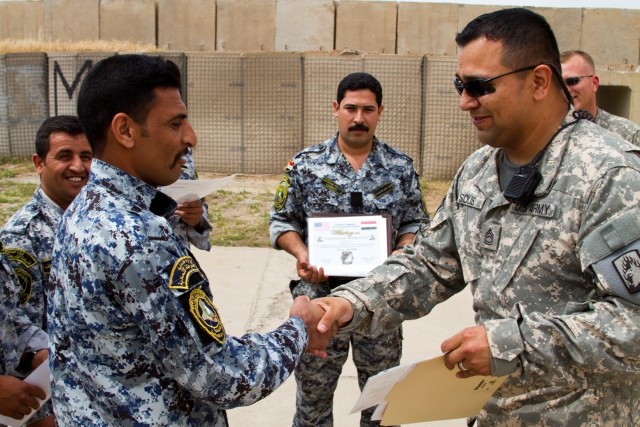
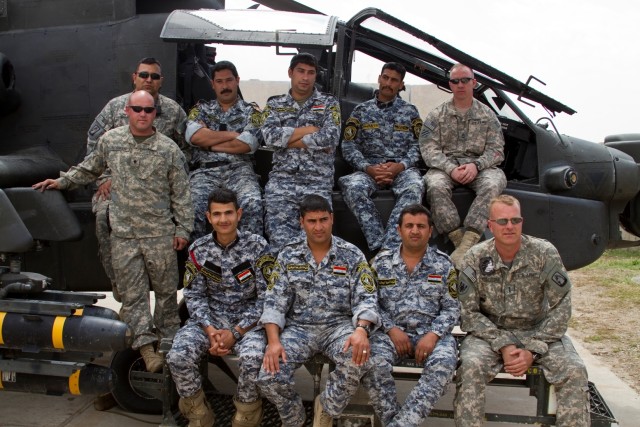
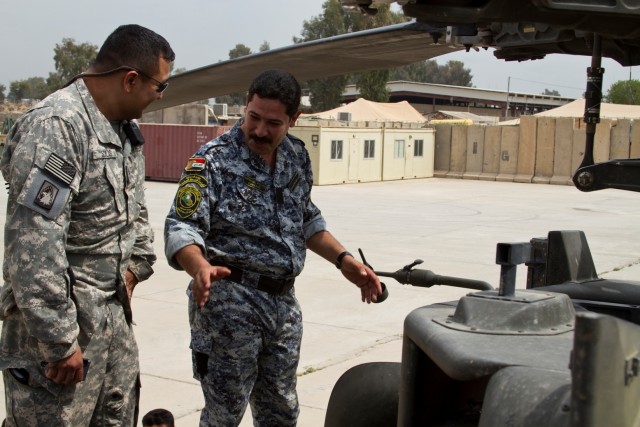
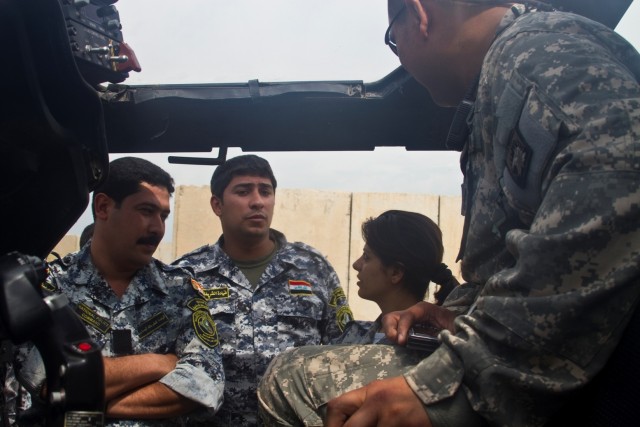
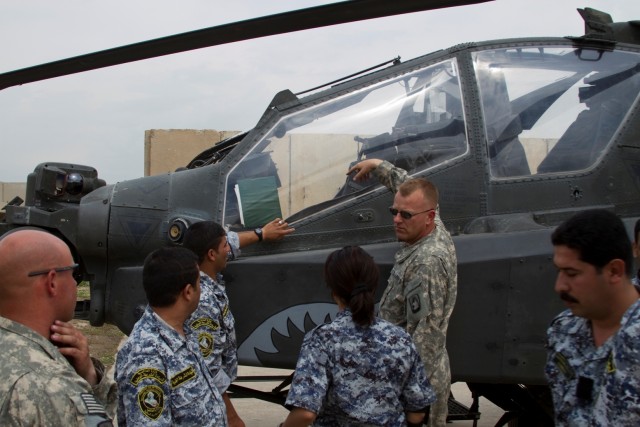
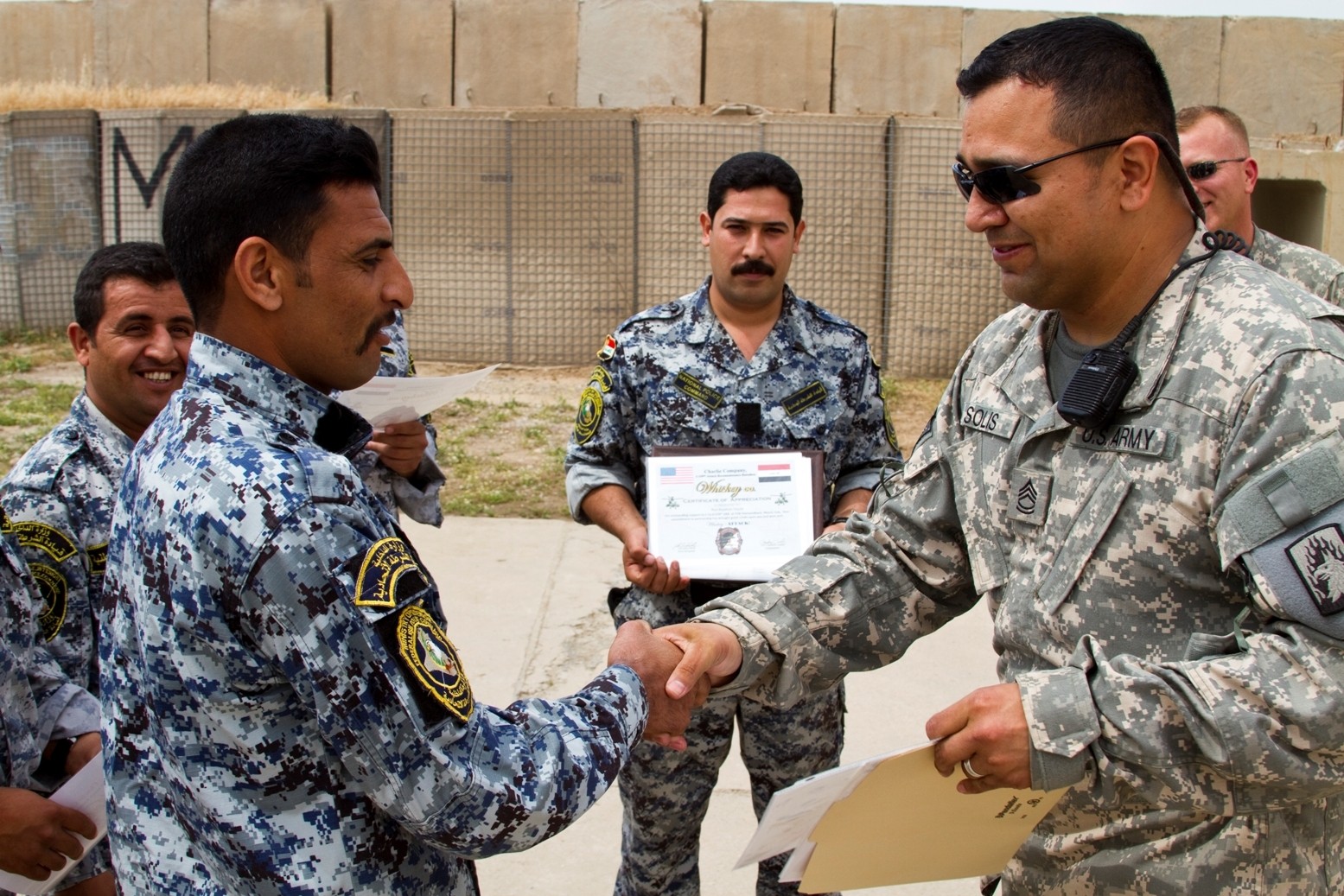
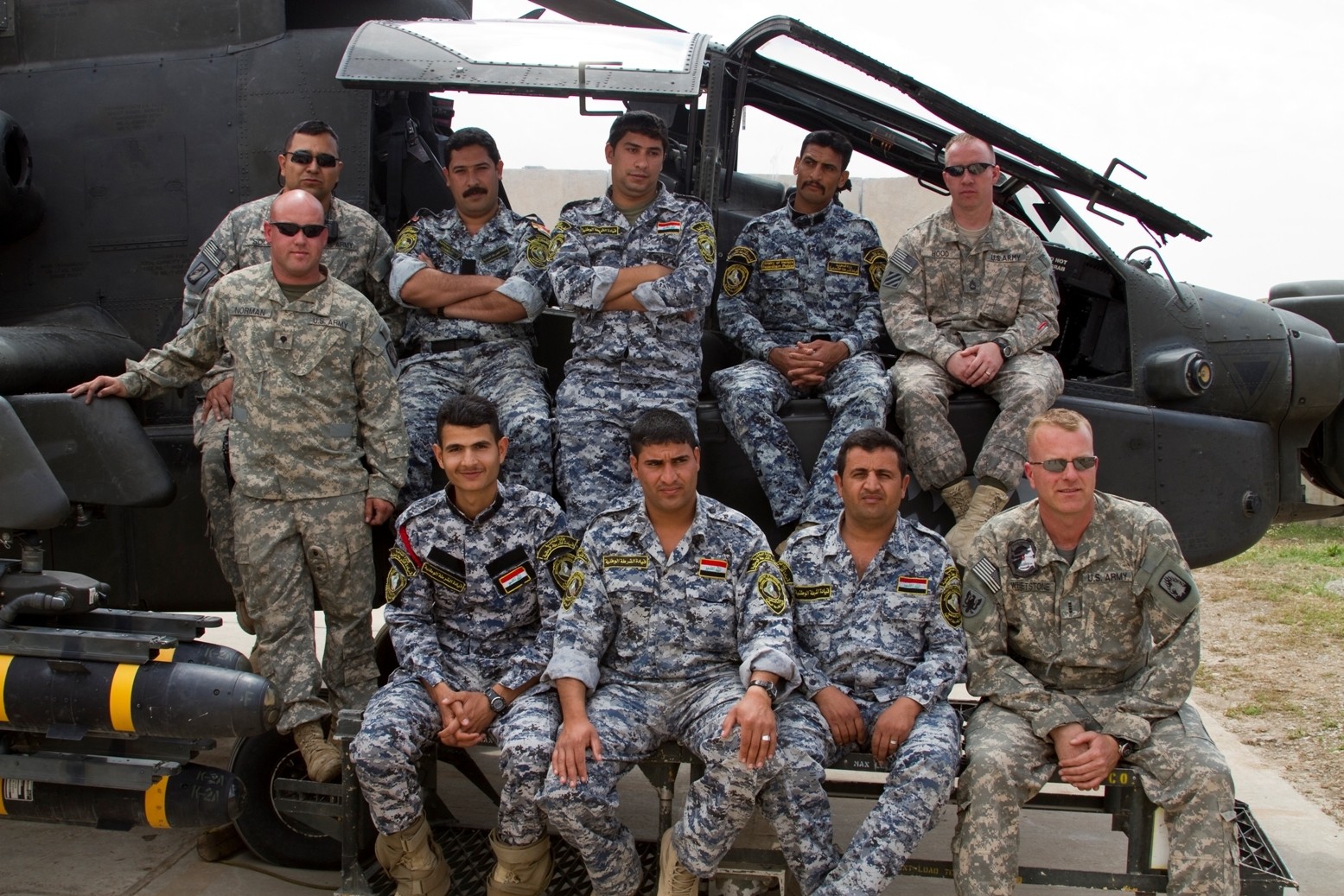


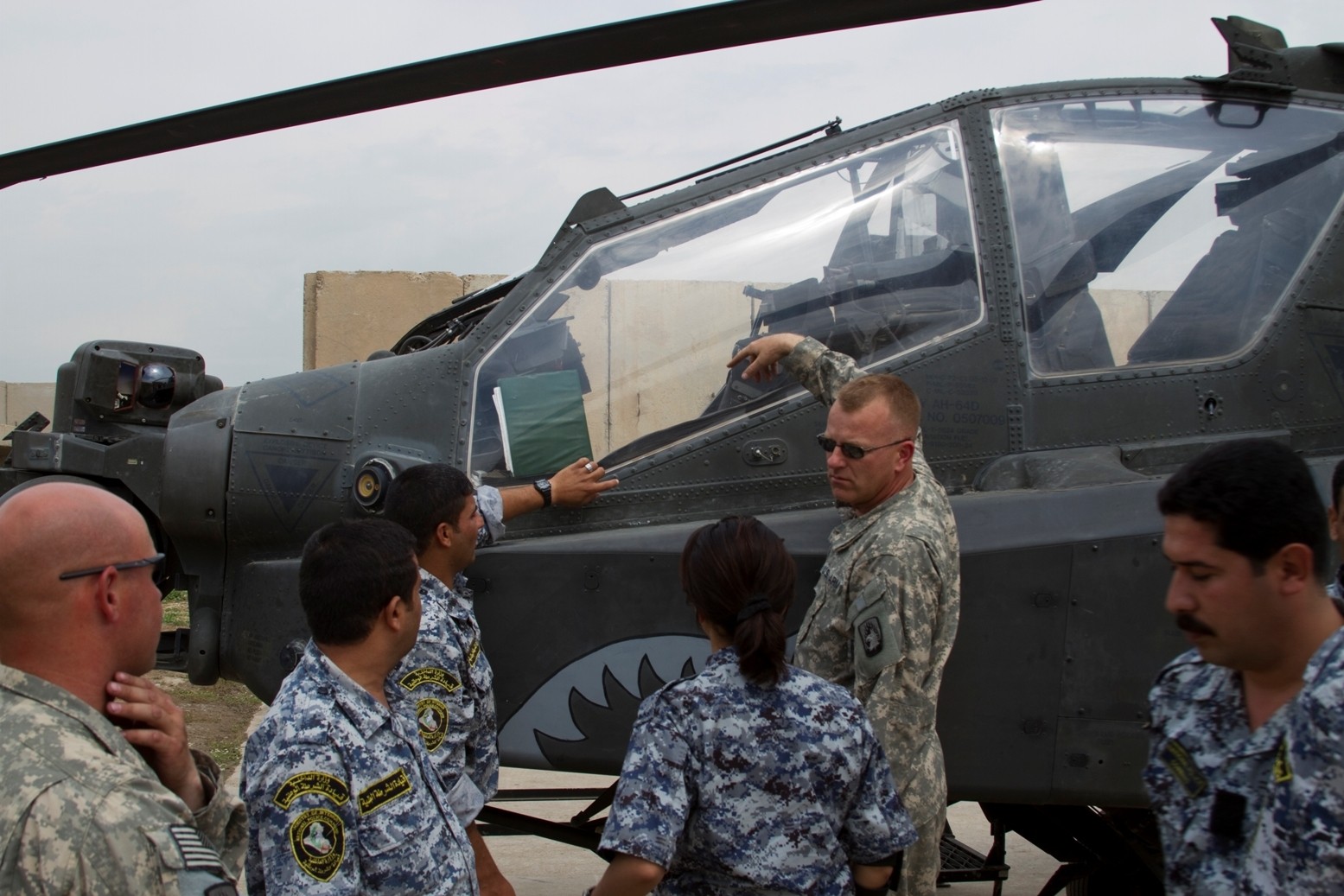
Social Sharing